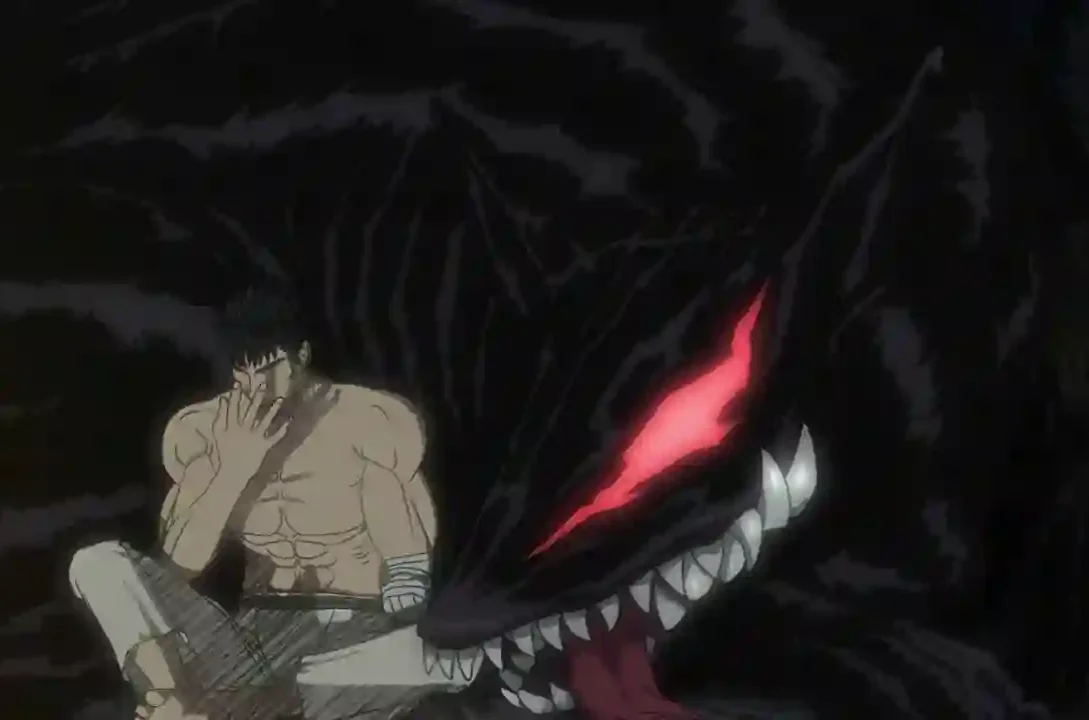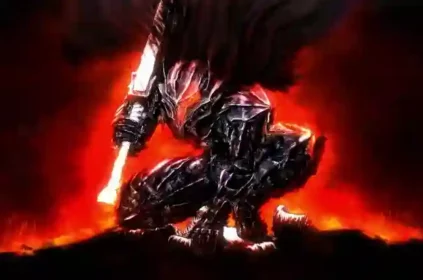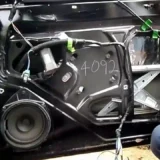“Berserk,” created by the late Kentaro Miura, is a dark fantasy manga renowned for its intricate storytelling and complex characters. At the center of this dark tale is Guts, a lone swordsman on a relentless quest for vengeance. But as he battles external foes and demons, Guts also grapples with an internal struggle known as the “Beast of Darkness.” In this article, we will explore the profound internal conflict that defines Guts’ character and its significance in the world of “Berserk.”
The Birth of the Beast
Guts’ journey begins with a traumatic childhood, marked by abandonment and abuse. Raised as a child soldier in the mercenary band known as the Band of the Hawk, he endured horrors that no child should experience. These early experiences left Guts with deep emotional scars and a burning desire for revenge against his former comrade, Griffith.
As Guts’ vendetta against Griffith takes shape, so does the internal struggle within him. The “Beast of Darkness” represents the darkest aspects of Guts’ psyche, born from his traumatic past and the overwhelming desire for vengeance. It is a metaphorical and symbolic manifestation of the emotional turmoil that haunts him.
The Nature of the Beast
The “Beast of Darkness” is a menacing and grotesque entity that resides within Guts’ subconscious. It is depicted as a shadowy, bestial figure with glowing eyes and a feral grin, embodying Guts’ most primal and vengeful instincts. This inner demon is relentless, urging Guts to forsake his humanity and embrace his violent desires without restraint.
The nature of the Beast is multifaceted, reflecting Guts’ complex character. It is driven by a thirst for revenge against Griffith and those who have wronged Guts in the past. The Beast’s presence intensifies during moments of extreme stress, danger, or traumatic memories, making it a constant source of internal conflict for Guts.
The Beast’s Influence on Guts
The influence of the Beast of Darkness on Guts is both profound and troubling. It manifests in various ways, impacting his thoughts, actions, and relationships. One of the most significant ways the Beast affects Guts is through his combat prowess.
In battle, the Beast serves as an inner source of power, granting Guts increased strength, speed, and brutality. While this enhanced ability aids him in defeating formidable enemies and demons, it also pushes him perilously close to the edge of losing his humanity. Guts becomes a relentless, almost berserk warrior on the battlefield, reflecting the very darkness he seeks to overcome.
The Beast also plays a role in Guts’ relationships with those closest to him. His interactions with his companions, particularly Casca and Isidro, are marked by moments of emotional distance and brutality. The Beast’s presence creates an emotional barrier that Guts struggles to overcome, leaving him isolated from the people who care about him.
The Moral Dilemma
The presence of the Beast of Darkness raises profound moral questions within the narrative of “Berserk.” Guts’ internal struggle serves as a thematic exploration of vengeance, morality, and the human capacity for darkness. It forces readers to confront the complexity of Guts’ character and the blurred lines between hero and anti-hero.
Throughout the series, Guts’ actions are often morally ambiguous. His quest for revenge drives him to commit acts of extreme violence and brutality, challenging conventional notions of heroism. The Beast of Darkness serves as a constant reminder of the moral dilemma Guts faces: Does his desire for vengeance justify the atrocities he commits, or is there a point at which he risks becoming a monster himself?
The Temptation of Revenge
The Beast of Darkness represents the temptation of revenge, a theme that permeates “Berserk.” Guts’ burning desire to confront Griffith and exact vengeance is a driving force in the narrative. The Beast exploits this desire, pushing Guts to embrace his darkest impulses and forsake his humanity in pursuit of retribution.
This internal struggle between vengeance and humanity is epitomized in Guts’ encounters with apostles and supernatural beings. As he battles these formidable foes, he is often pushed to the brink of losing himself to the Beast’s influence. The line between hunter and hunted becomes increasingly blurred, leaving Guts at risk of becoming the very monster he despises.
The Healing Power of Bonds
While the Beast of Darkness is a formidable adversary within Guts’ psyche, it is not without resistance. The series highlights the healing power of human connections and the potential for redemption. Guts’ relationships with his companions, particularly Casca and his newfound band of allies, provide a counterbalance to the darkness that threatens to consume him.
Casca, in particular, serves as a symbol of hope and redemption for Guts. Their shared history and the depth of their love create a lifeline for Guts, anchoring him to his humanity. Her presence reminds him of the need to protect and care for others, counteracting the Beast’s destructive influence.
The Quest for Self-Identity
At its core, Guts’ internal struggle with the Beast of Darkness is a quest for self-identity. He grapples with questions of who he has become and whether he can ever find redemption and peace. The Beast represents the darker aspects of his past and his present, but it also embodies the possibility of transformation and self-discovery.
Throughout “Berserk,” Guts seeks to reconcile his desire for vengeance with his longing for a sense of belonging and purpose. His journey is one of self-exploration, and the internal struggle with the Beast is a central aspect of this quest for self-identity.
Conclusion
The Beast of Darkness is a haunting and profound element of “Berserk” that adds layers of complexity to Guts’ character and the overarching themes of the series. Kentaro Miura’s masterful storytelling delves deep into the human psyche, exploring the moral and emotional dimensions of revenge, redemption, and the struggle to maintain one’s humanity in the face of overwhelming darkness.
As “Berserk” continues to captivate and challenge readers, Guts’ internal struggle with the Beast of Darkness remains a central and enduring theme. It invites readers to contemplate the complexities of the human condition and the capacity for both light and darkness within us all.











